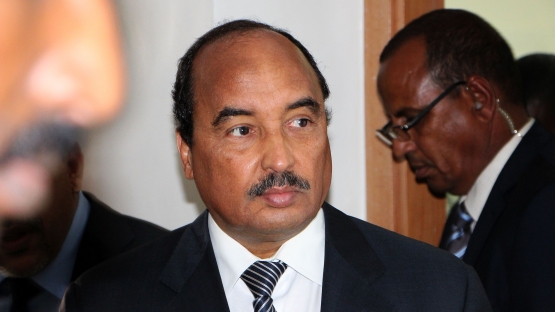November 28 is the National Day of the Islamic Republic of Mauritania, and each year, citizens and tourists alike take to the streets in celebration. There was a particularly special reason to celebrate this year, because His Excellency Mr Mohamed Ould Abdel Aziz, the President of the Islamic Republic of Mauritania, visited the National Oncology Centre in Nouakchott the day before to inaugurate the nation's first nuclear medicine facility. The staff of the facility have all been trained with the support of the IAEA's technical cooperation (TC) programme.
Cancer is increasingly recognized as a major public health problem in Africa, including Mauritania. As standards of living increase on the continent, so too do the socioeconomic factors which contribute to the incidence of cancer, including smoking, unhealthy diets, pollution and physical inactivity. The common cancers seen in Mauritania are of cervix, breast, prostate liver and ovary. Prior to working with the IAEA, Mauritania struggled with the challenges of cancer diagnosis and treatment. Haematological malignancies and solid tumours require specialized treatment that was unavailable in the country, and Mauritanian hospitals were forced to send patients to be treated abroad.
Aware of the growing financial and human costs related to cancer, the Government of Mauritania made a firm commitment to develop its cancer treatment capacities, working with the IAEA's technical cooperation programme. After diligently implementing the necessary safety and security measures, Mauritania was able to launch a TC project[1] in 2009, which aimed to establish two cancer treatment facilities, both built within the grounds of the existing National Oncology Centre (CNO) in Nouakchott.
Staffing for the first facility, a complete radiotherapy centre, was supported through IAEA fellowships, training courses and expert visits which provided the necessary technical expertise. As part of a related regional TC project, a regional training course for the radiotherapy technologists from francophone African Member States was organized in Nouakchott in 2013. All told, three medical physicists, four radiation oncologists, six radiation therapy technicians (manipulators) were trained under the project. The centre was inaugurated by H.E. President Abdel Aziz, and opened to the public on November 27, 2010.




